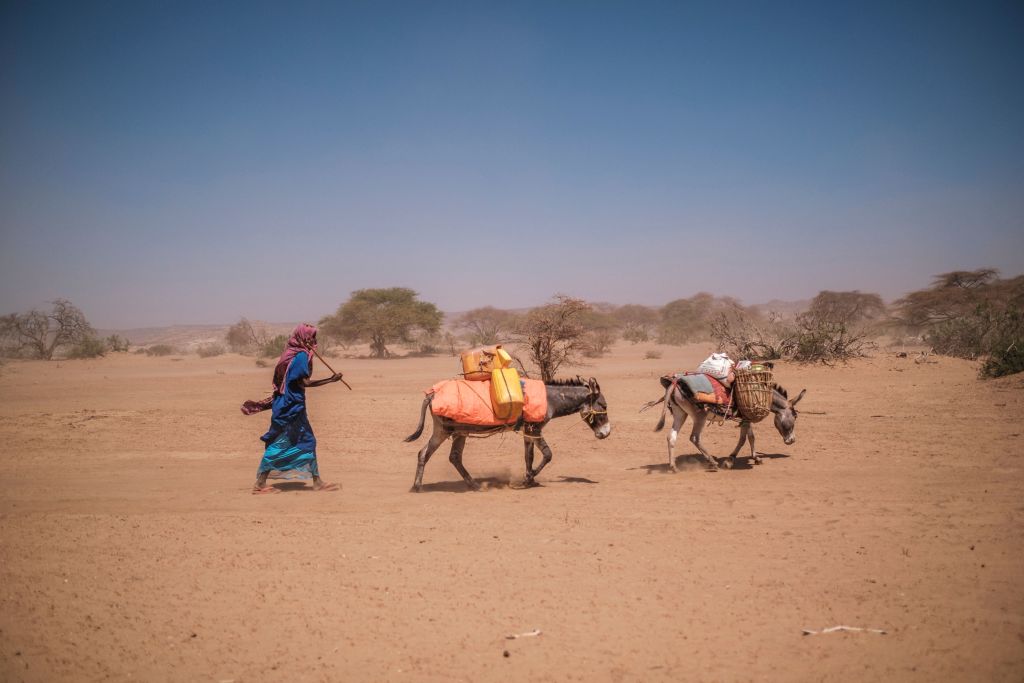ADF STAFF
The African Union in mid-February dealt a blow to China’s ejiao industry when it banned the slaughter of donkeys for their skin in all 54 countries, earning praise from animal rights organizations.
Collagen extracted from donkey skin produces ejiao, a traditional Chinese remedy used by people with anemia, low blood cell counts or reproductive issues, despite no scientific evidence that it works. It also is used in snacks and beauty products such as face creams. The collagen is extracted by boiling donkey hides that are mixed with herbs and other ingredients to produce bars, pills and liquids.
Marketed to the wealthy, ejiao sells for about $780 a kilogram in China, with high demand driving a 160% increase in production since 2016, according to Emirati newspaper The National News.
China was forced to look to Africa for donkeys because its own donkey population collapsed due to demand for
ejiao. The Chinese market for it has increased from
about $3.2 billion in 2013 to about $7.8 billion in 2020, The Conversation reported. Africa is home to 60% of the world’s donkeys.
The AU ban is a “terrific moment for communities in Africa who have benefited from donkeys since time immemorial,” Raphael Kinoti, regional director of the animal welfare charity Brooke East Africa, told the BBC.
A Critical Resource
Countless Africans depend on donkeys for transportation and to carry food and other goods.
In Ethiopia, home to 8.8 million donkeys, a recent study by the Firoz Lalji Institute for Africa showed that owning one donkey can mean the difference between destitution and a modest living.
But donkey theft, driven largely by demand for ejiao, has been increasing around the continent for years.
For Steve, who sells water in Nairobi, Kenya, donkeys do the arduous work of pulling a cart loaded with 5-gallon cans of water. Steve, a pseudonym, went to the field to get his animals one recent morning, but they were gone.
“I couldn’t see them,” he told the BBC. “I searched all day, all night and the following day.”
A friend called him three days later to say he found the animals’ skeletons. “They’d been killed, slaughtered; their skin was not there,” Steve said.
The continental donkey population plummeted in recent years due to Chinese demand for ejiao, which accounts for the slaughter of more than 5 million animals globally each year. “Between 2016 and 2019, we estimate that about half of Kenya’s donkeys were slaughtered” to supply the skin trade, Solomon Onyango, who works for The Donkey Sanctuary in Nairobi, told the BBC.
Implementing the Ban
Jennifer Croes, a conservation scientist in the United Arab Emirates and strategic advisor to the Interpol Wildlife Crime Working Group, commended African leaders for showing leadership in tackling the illegal wildlife trade.
“The question now is how this ban will be implemented and what the timeline is for enforcement,” Croes told The National. “I am working with maritime and aviation sectors to encourage them to commit to a ‘no donkey skins’ carriage policy.
“This trade ban makes it easier for transport stakeholders to put measures in place or operating processes whereby they can actually say no to the carriage of donkey skins,” Croes added.
Otieno Mtula, regional campaigns and advocacy manager at The Donkey Sanctuary, urged each African country to implement and enforce the ban.
“We will work closely with our colleagues and partners across Africa to provide all the support and resources we can to see this commitment to a ban on the slaughter of donkeys for their skins become a reality across Africa and the start of a new era for donkey welfare,” Mtula said on the organization’s website.

